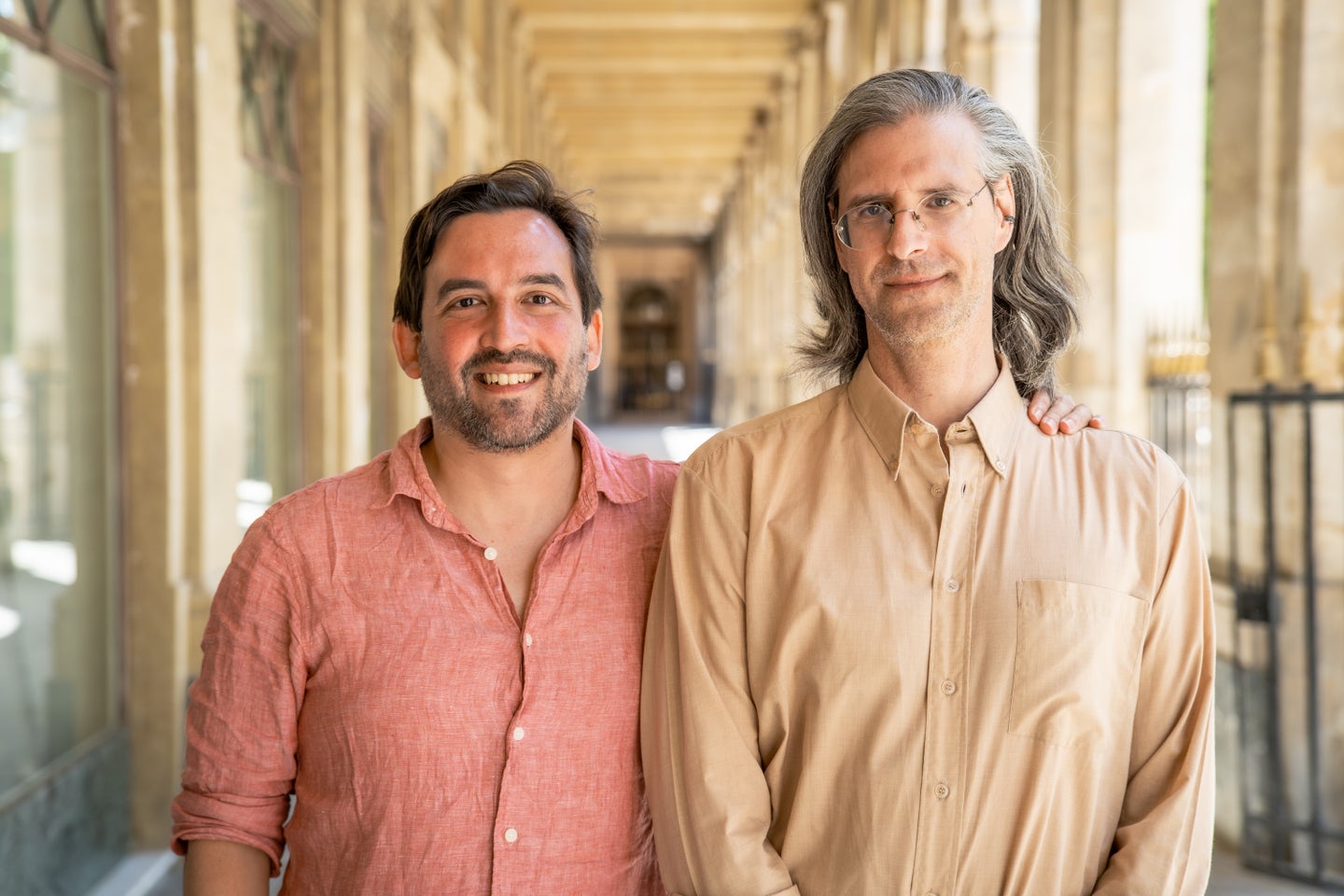5 Questions with Jules Caron and Misha Lepetic, Co-Founders of Iroko Analytics for Paris Techstars Accelerator
Aug 10, 2022

Jules Caron and Misha Lepetic, Founders of Iroko Analytics
01. What is your background? Take us through the steps of becoming a founder
Jules: For the last ten years, I have been an environmental campaigner working all over the Congo Basin. I worked with many of the major NGOs – WWF, Global Witness, Oxfam – as well as many local organizations. We had some notable successes, such as preventing the expansion of logging concessions across the Democratic Republic of Congo, but in the end I realized it was hard, hard work that wasn’t scaling, even when it was delivering results.
Misha: I’ve been in tech since the first wave of web startups in San Francisco in the mid-90s. I’ve always brokered the relationship between an organization’s tech and management, usually around knowledge management, business processes and systems integration work. Over the last 25 years I’ve worked in and consulted to some of the largest private companies, as well as NGOs, startups and the United Nations.
Jules: I became frustrated with everything that was wrong in the conservation sector – the bureaucracy, the lack of attention to science – and envisioned an NGO that would fix all of that. I called up Misha, whom I’ve known for many years, and about three years ago we co-founded Project Canopy.
Misha: I jumped in with Jules because I’d seen it all as a consultant and needed a bigger challenge, and he gave it to me. Starting an organization is hard enough, but starting an NGO is even harder. After some time we realized we needed to move towards a revenue model, so we have spent the last year working on Iroko Analytics, which has itself gone through a substantial pivot, thanks to Techstars.
02. How do you and your co-founder know each other?
Misha: Jules and I met when we were both living in Bolivia in the late 90s. The way I like to tell it is that I was pretending to be a DJ, and Jules was pretending to be a journalist. Eventually we both got pretty good at it – the doing, that is, not the pretending! Going into business with your friends is always risky, but Jules and I work extraordinarily well together.
03. What did you enjoy most about the Paris Techstars Accelerator’s program and what are your biggest learnings?
Jules: I learned so much, especially when it came to pitching. We must have pitched to hundreds of people. It was exhausting but equally exhilarating. I didn’t really know what to expect of this, my first experience with the private sector. After meeting all the passionate and intelligent people involved in Paris Techstars, I’m convinced, more than ever, that the private sector has to be involved if we’re to have any chance at stopping climate change.
04. What were some of the obstacles your company faced throughout the three months of the acceleration program ?
Misha: The hardest part for us was getting customers to pick up the phone. Our initial business model targeted EU timber traders; our platform would help them assess the legality of tropical timber they were buying from the Congo Basin. But these are all very small, conservative firms, and rather suspicious of outsiders. In the end we had to concede that there wasn’t enough market support for the kind of platform we were building, hence our pivot to carbon markets.
Jules: Also, people we called to talk about the timber platform would end up wanting to talk to us about carbon instead. Enough of these conversations meant that there was a real signal we needed to heed.
05. How do you plan to measure the impact of your company in the next 5 years?
Jules: This is pretty simple, actually. The more logging concessions we can flip to using carbon credits, the more trees we will save, and the more carbon will stay out of the atmosphere. We are building a model right now that will take the expected revenue of any given logging concession, along with the emissions created by that harvesting, and see what carbon price is needed to make logging obsolete. Essentially, we want to make the logging companies an offer they can’t refuse. Ideally, we would like to flip every logging concession in the entire Congo Basin within 5 years. In the next five years, we expect to save 524,238 tons of CO2 from entering the atmosphere.
Misha: It’s not only logging. The oil and gas blocks that are up for auction in DRC also represent gigatons of potential emissions that will be released into the atmosphere. At the same time, it’s questionable how much extractable O&G these blocks actually represent. So there is plenty of need for action, but there is also plenty of opportunity. The Congo Basin is the last tropical forest carbon sink, absorbing over 600Mt every year, so if we can secure that via financial mechanisms, we’re all in.
For the latest news on our applications, please visit our page.
